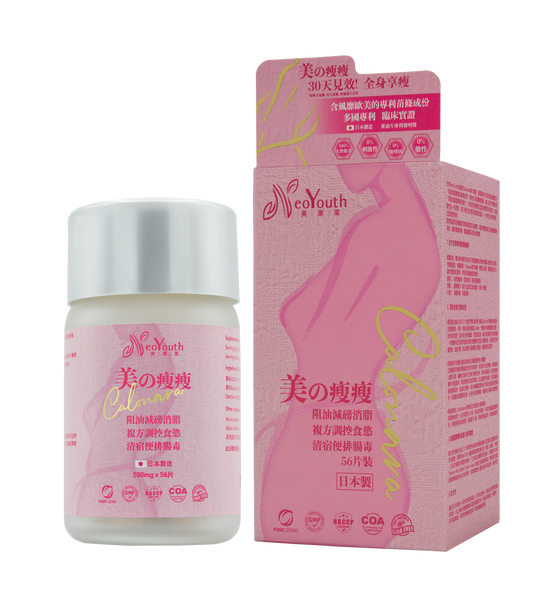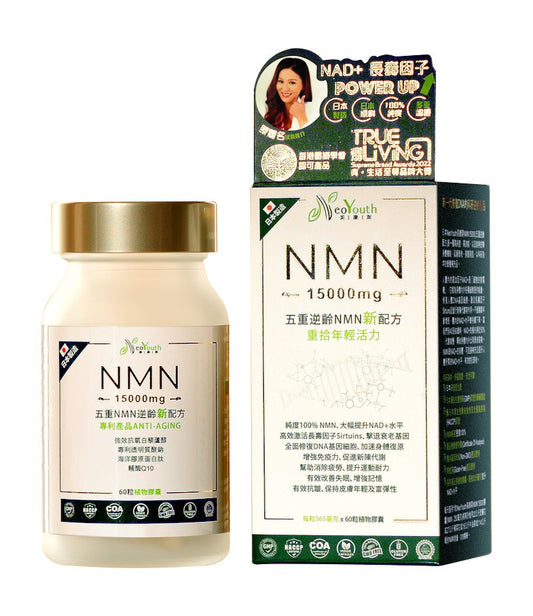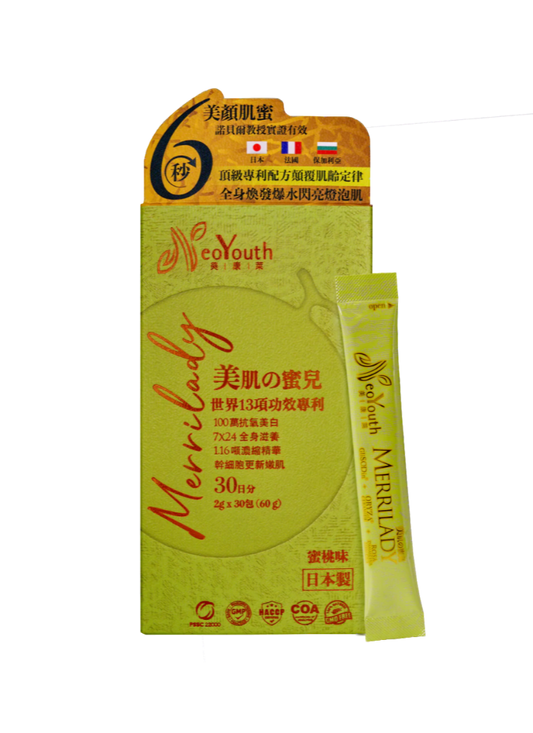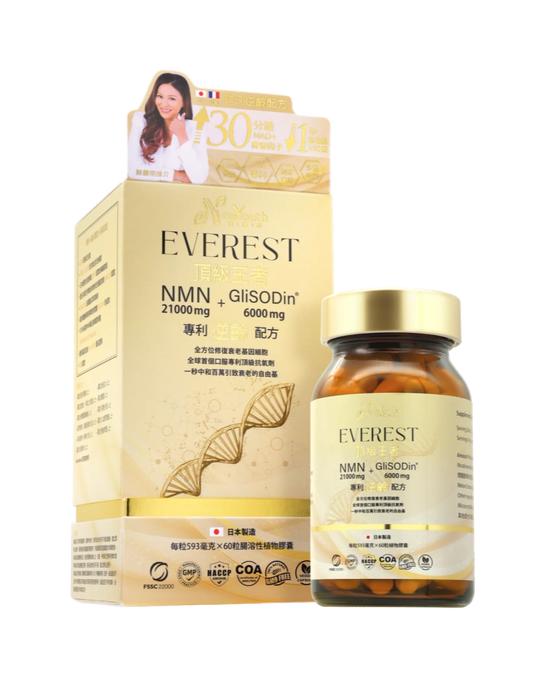How long does skin regeneration take? During skin metabolism, dead skin cells are pushed aside, and new cells are generated, keeping the skin healthy. However, as we age, skin metabolism takes longer to complete a renewal cycle, and dead skin cells remain on the skin's surface for longer. So how can we speed up skin metabolism and keep our skin smooth? NeoYouth will share the skin metabolism process and methods to promote it.
Understanding the skin's metabolic process
As the largest organ in the human body, the skin is responsible for protecting internal tissues from damage caused by the external environment, while also constantly undergoing cell renewal and metabolism. For people aged 20 to 30, the complete skin metabolic cycle (from the generation of new cells to the shedding of dead skin cells) generally takes about 28 to 30 days. The skin metabolic process can be roughly divided into several stages:
- New skin cell generation (approximately 1 to 2 weeks): The first stage of the skin's metabolic process begins in the basal layer of the epidermis, the deepest layer of the skin, where new cells are generated. Basal layer skin cells continuously divide, forming keratinocytes. As skin cells continue to divide and grow, new cells gradually replace old cells, ensuring healthy skin.
- Keratinocytes migrate upwards (approximately 2 to 3 weeks): As these newly formed keratinocytes mature, they begin to migrate upwards, gradually penetrating the epidermis and moving towards the skin surface. During this process, the cells undergo changes, gradually becoming flattened and stacked. These mature keratinocytes stack layer upon layer to form the stratum corneum of the skin and are gradually pushed towards the skin surface.
- Dead skin cell shedding (approximately 1 week): These mature keratinocytes migrate to the outermost layer of the skin, forming a protective layer on the skin's surface. During this process, these keratinocytes gradually die and enter the keratinization stage, forming a rough, dead skin layer. Although these dead skin cells protect the skin, they are also pushed aside by new skin cells, naturally shed, and replaced by new skin cells, completing the skin's metabolic process.
Skin metabolism time varies from person to person.
The duration of skin metabolism is influenced by various factors, including age, lifestyle habits, diet, and environmental factors. As we age, the skin metabolism cycle becomes longer. The skin metabolism time at different ages is as follows:
|
age
|
Skin metabolism time
|
|
Under 20 years old
|
Approximately 2 to 3 weeks
|
|
20-30 years old
|
Approximately 4 to 6 weeks
|
|
30-40 years old
|
Approximately 6 to 12 weeks
|
|
40 years and older
|
It may take more than 12 weeks.
|
How to promote skin metabolism?
Promoting skin metabolism helps maintain healthy and radiant skin, and effectively prevents problems such as dullness, roughness, and dryness. Therefore, proper skincare and lifestyle can accelerate skin metabolism and keep skin vibrant.
1. Develop a healthy lifestyle
Sufficient sleep, moderate exercise, and a balanced diet all contribute to skin's self-repair and cell regeneration. During sleep, the skin repairs itself, which helps accelerate skin metabolism. Exercise also promotes blood circulation, allowing skin cells to absorb more nutrients and oxygen, improving skin texture and accelerating skin metabolism. As for diet, foods rich in antioxidants, vitamins, and Omega-3 fatty acids can help reduce external damage to the skin and promote healthy skin.
2. Regular skincare and exfoliation
Regular exfoliation can help accelerate the skin's metabolic process. When too much dead skin cell buildup accumulates, it hinders the generation of new cells, making the skin appear dull and rough. Regular exfoliation removes the aged stratum corneum, promotes the circulation of new cells, and makes the skin smoother and brighter. You can choose chemical exfoliants (such as products containing fruit acids or AHAs) or physical exfoliants (such as scrubs) to remove dead skin cells and promote the skin's natural renewal.
3. Moisturizes and maintains the skin barrier
Maintaining skin hydration helps sustain the skin's normal metabolic rate. When skin is dehydrated, the metabolic rate slows down, leading to dryness and roughness. Using moisturizing products, such as those containing hyaluronic acid and glycerin, can maintain skin hydration and promote skin cell regeneration. Furthermore, protecting the skin barrier is equally important, as a healthy skin barrier prevents moisture loss and blocks external irritants, thus helping the skin maintain a stable metabolic cycle.
4. Sunscreen
Ultraviolet (UV) radiation can affect the skin's metabolic rate and even accelerate the aging process. Using sunscreen (SPF 30 or higher) can effectively protect against UV rays and reduce sun damage to the skin. Keeping the skin clean and avoiding excessive sun exposure helps reduce the negative impacts of external factors on the skin, thereby maintaining healthy skin and a normal metabolic cycle.
Japanese NeoYouth Merrilady Beauty Skin Mier
How to accelerate skin metabolism? If you wish to simultaneously promote skin cell regeneration and improve skin tone, hydration, and overall condition, consider NeoYouth Merrillady's Triple-Action Skin Care Formula from Japan. This supplement boasts 13 international efficacy patents and combines revolutionary triple-action skin care ingredients. Three nationally recognized scientific formulas are blended in a perfect golden ratio, clinically proven to provide 24-hour continuous, highly effective skin nourishment and rejuvenation, offering sustained hydration, brightening, anti-inflammation, and protection against oxidation up to 1 million times stronger.
NeoYouth's Merrillady skincare line from Japan features three world-class ingredients, including GliSODin®, a patented French melon extract known as "super enzyme SOD." This ingredient is at the top of the clinically proven antioxidant pyramid and is extracted from natural plant active ingredients. It is the world's first clinically proven SOD that is both orally effective and "absorbable through the digestive system." SOD is an antioxidant enzyme that the human body can produce on its own, but the amount of SOD cannot keep up with the rate of natural aging. Therefore, consuming high-concentration SOD is necessary to effectively accelerate skin cell metabolism and enhance skin vitality and radiance.
In addition, the Japanese patented Oryza Ceramide® (also known as ceramide or ceramide) is the only ingredient in Japan that has been clinically proven to have both moisturizing and whitening effects. It can replenish moisture in the skin layer, strengthen the skin barrier to prevent moisture loss, and restore the skin to a supple and radiant state.
In addition, the high-concentration extract of Bulgarian Damask rose stem cells is a world-renowned nourishing ingredient containing unique active essences and various nutrients. It is effective in protecting skin cells, promoting epidermal cell regeneration, improving the skin's resistance to ultraviolet rays, and reducing inflammation, and helps promote skin metabolism.
Having learned about the skin metabolism process and time, and how to accelerate skin metabolism, if you are interested in purchasing NeoYouth Merrillady from Japan, please feel free to contact us.
References:
https://www.bio-nin.com/zh-tw/news.php?act=view&id=68
https://www.takami-labo.com.tw/facial-rough.html





